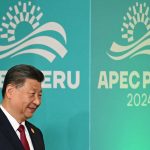In a sweeping move to overhaul Argentina’s food trade policies, Javier Milei’s administration officially deregulated food imports and exports on Monday. The reform, outlined in Decree 35/2025, seeks to boost foreign trade, cut bureaucratic red tape, and lower consumer prices.
Federico Sturzenegger, head of the Ministry of Deregulation and State Transformation, explained in a post on X that the measure “seeks cheaper food for Argentines and more Argentine food for the world.”
Under the new policy, food products and packaging certified by countries with “high sanitary surveillance” can now enter Argentina without any additional registration or approval processes. These items will be automatically recognized under the Argentine Food Code, cutting down on administrative delays and costs for importers.
The legislation identifies countries such as Australia, New Zealand, Canada, the United States, Israel, Japan, Switzerland, and the United Kingdom, as well as the European Union, as having similar or higher sanitary standards than Argentina.
As Sturzenegger explains in his post, this measure “eliminates requirements to register and authorize: samples, products, establishments, warehouses, utensils, and containers (32 pages of paperwork).”
When it comes to exports, domestic food products marketed abroad must only comply with the requirements and restrictions imposed by the country of destination. This eliminates the need for Argentine food producers to comply with burdensome domestic regulations that don’t always align with international demand.
However, “all foods, condiments, beverages, raw materials, and food additives that are processed, fractioned, preserved, transported, displayed, or exhibited,” in Argentina must still meet the requirements of the Argentine Food Code, regardless of whether they are produced domestically or imported, the decree states.
“In recent months, countless companies have told us about the unbelievable difficulties they had to go through in order to meet local requirements that were not required by the market,” Sturzenegger said. “To a producer who needed to certify a sample to determine whether he could send the product to the U.S., we asked him to build a factory first. To sellers of garlic to be used to make paste in Asia, we had them measure the size of each head of garlic.”
“With this new initiative, the national government seeks to streamline and simplify administrative procedures in the exchange of goods and products, understanding that economic activities are the true engine of the country’s development and that it is also essential to protect the health of the entire Argentine population,” the decree says.
The post Javier Milei Deregulates Food Imports and Exports appeared first on Reason.com.







